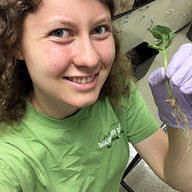The Sci-Files – 03/14/2021 – Hannah Jeffery – How Fast Cooking Beans Can Benefit Our Future
March 15, 2021

On this week’s The Sci-Files, your hosts Chelsie and Danny interview Hannah Jeffery. The focus of her project is dry beans, the kind used to make refried beans or Bush’s baked beans. When prepared fresh, beans are a very nutritious food (high protein, iron, zinc, and fiber), and consuming beans is linked to a lower risk of malnutrition and diseases like type II diabetes and cancer. However, they have a long cooking time (an average of 90 minutes). This may explain why many home cooks in wealthy nations choose canned beans over-preparing fresh beans, although canned beans have tradeoffs like a higher sodium content. Long cooking times also strain local firewood supplies in nations like Africa and South America, where wood stoves are commonly used.
Not having enough wood to cook beans to completion may eventually lead to a shortage of key nutrients in the most vulnerable communities on Earth. The goal of this project is to identify the genetic mechanisms that control the cooking times of dry beans, and the long-term goal is to use this information to breed fast-cooking varieties of dry beans for public consumption. This will be accomplished by comparing gene expression in fast- and slow-cooking beans using bioinformatics and biochemical techniques. Of note, there is particular interest in introducing the fast cooking trait to yellow Manteca beans, which are reported to have high zinc and iron contents relative to other varieties.
If you’re interested in talking about your MSU research on the radio or nominating a student, please email Chelsie and Danny at [email protected]. Check The Sci-Files out on Twitter, Facebook, Instagram, LinkedIn, and YouTube!































